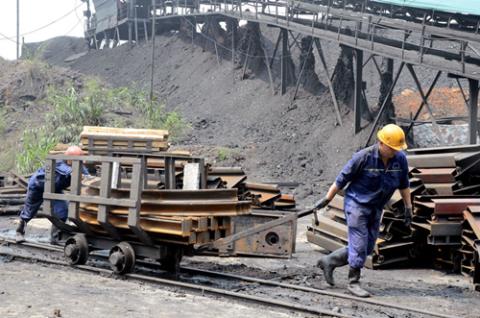Michelin leads the smart mobility revolution with data and AI
Michelin is undergoing a strong transformation by applying AI and smart analytic, helping lead the smart, safe, and sustainable mobility revolution in the Industry 4.0 era.




At least 9 million tons of coal are in stock because domestic demand is low, while the coal price in Vietnam is higher than in other countries.

The Vietnam Coal and Mineral Industries Group (Vinacomin), the largest coal miner, has been told to clear the 9 million tons of coal in stock which is believed to be the biggest hurdle for its growth and business efficiency. However, experts say it will be difficult to do.
Nguyen Thanh Son, former director of Vinacomin’s Management Board of Coal Projects in the Red River Delta, said there were many reasons behind the big stock.
Vietnam has many types of coal which have low quality, not suitable to market needs. In principle, low-quality coal which is not accepted by the market must be considered a ‘waste product’, not a ‘product’, and must not be counted into annual production costs.
High-quality coal has been lost because of illegal consumption, and has been sorted for export, and only low-quality products have been left.
Another reason an expert cited for low quality coal is the loosening of quality management. State management agencies issued standards which don’t fit market standards.
“Besides the national standards of TCVN, there exist TCN and TCCS standards as well, standards at lower levels which are not accepted by the market,” Son said.
The big inventory of coal has caused headaches for Vinacomin. An analyst estimated that 9 million tons of coal in stock means VND13.5 trillion worth of unusable capital and VND1 trillion per annum of bank loan interest.
Truong Duy Nghia, chair of the Vietnam Heat Association, agreed with Son that the domestic coal price is still higher than regional countries and the world.
He said in 2014-2016 period, coal was imported by Duyen Hai Plant at $40 per ton, while Vinacomin sold coal at $70-80 per ton to thermal power plants in Vietnam.
Meanwhile, the demand from loyal markets such as South Korea and China is on the decrease, which is one reason behind the big stock.
Asked what to do to clear the stock, an analyst said some countries have to lower the export prices. If the domestic market is low, exporting coal is the only choice.
“Ministries and branches will have to make decisions about whether to accept to sell coal at low prices,” he said.
Pham Pho, former principal of the Saigon Economics & Polytechnic College, said that China buys in large quantities, but only accepts very low prices.
Michelin is undergoing a strong transformation by applying AI and smart analytic, helping lead the smart, safe, and sustainable mobility revolution in the Industry 4.0 era.
LG Innotek Vietnam Hai Phong secured a $200 million IFC loan as revenue slows, aiming to expand camera module production while meeting sustainability targets.
For Koen Soenens, Sales and Marketing Director at DEEP C, empathy is a compass that guides major deals, the way a leader builds a team, and the ambition to create a sustainable industrial zone that carries a Vietnamese identity.
Taseco Land has shifted its listing to HOSE and introduced a new upward-pointing arrow logo - a visual statement of its strategy to raise capital, expand its land bank, and strengthen its standing in Vietnam’s real estate sector
Located in the heart of Ho Chi Minh City, SAP Labs Vietnam is the second SAP Labs Network hub in Southeast Asia, following Singapore and is one of 20 countries that have SAP Labs globally.
Solar & Storage Live Vietnam event has been running since 2017 and the 2025 edition will be the biggest yet.